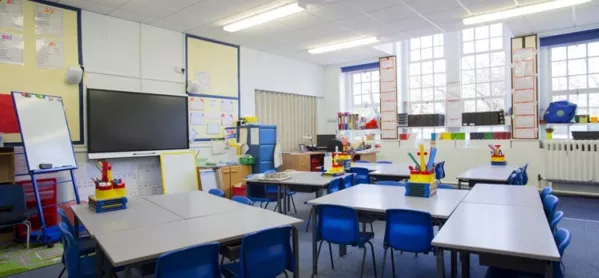A headteachers’ union has said the government needs to give schools and communities more guidance about when local spikes in Covid-19 should result in schools closing.
The Association and School and College Leaders has raised concerns about the uncertainties facing schools after the government imposed new restrictions on parts of North West of England and much of West Yorkshire last week at very short notice.
In these areas people from different households are not allowed to meet at their homes either indoors or in the garden, amid concerns about an increase in the transmission of the virus.
Johnson: Opening schools a national priority
Trade-off: ‘Opening schools may mean closing pubs’
News: School Covid outbreaks won’t ‘generally’ mean closures
ASCL has raised the question of what these changes will mean for schools reopening and on what basis local decisions on whether to close schools should be made.
Julie McCulloch, ASCL’s director of policy said: “There remains a great deal of uncertainty about how schools will be affected by local restrictions in response to Covid spikes.
“Government guidance says that, in the event of a local outbreak, the PHE health protection team or local authority may advise a school or a number of schools to close temporarily to help control transmission.
“It says that schools will need a contingency plan for this eventuality. This may involve a return to remaining open only for vulnerable children and the children of critical workers, and providing remote education for all other pupils.
“However, we do not have any information about the considerations or trigger points that would guide any decision to close schools.
“It would be helpful if the government could provide some guidance about how these decisions will be taken, so that everybody understands the rationale.”
Last week, prime minister Boris Johnson said that reopening schools in September was “a national priority”.
He was asked by media at a press conference following the introduction of new restrictions whether he still wanted to get people to go back to the workplace in August and pupils back to school in September.
He replied: “I do believe that getting our children back into school on 1 September, and 11 August if they’re going back in Scotland, should be a national priority.
“That should be something we aim to deliver. It’s the right thing for children that they can be educated in a safe and a Covid-secure way and we should be getting them back into school. But what we will continue to do, obviously, is institute local lockdowns to stop the virus getting out of control.”
However, ASCL has voiced concerns about an apparent lack of a national plan B if schools need to be closed down again nationally.
Ms McCulloch said: “We remain concerned also about the fact that the government lacks a Plan B in the event of a second national shutdown of schools. We fully support the reopening of schools to all pupils and we are pleased that the Prime Minister has said this is a national priority.
“But it would be prudent to have in place an alternative strategy which could be easily switched on if a full reopening proves impossible because of infection rates.”
A Department for Education spokesperson said: “From September, all children will return to the classroom, as we know school is the best place for teachers to educate their students, and for children to benefit from direct interaction with their friends.
“Parents are becoming increasingly confident in their children returning to school, which is testament to the work of school staff across the country who are putting in place a range of protective measures to prepare to welcome back all pupils at the start of term.
“We’ve been clear that schools need to prepare to deliver remote education if pupils need to self-isolate or local areas have to lockdown.”




